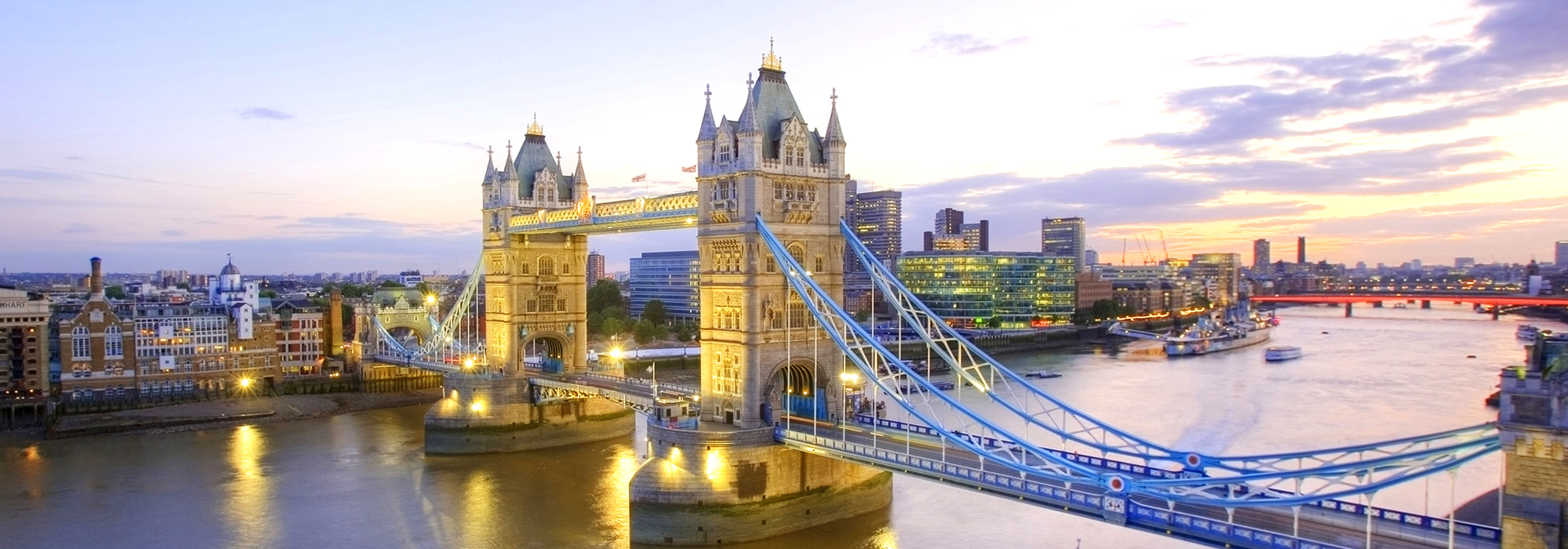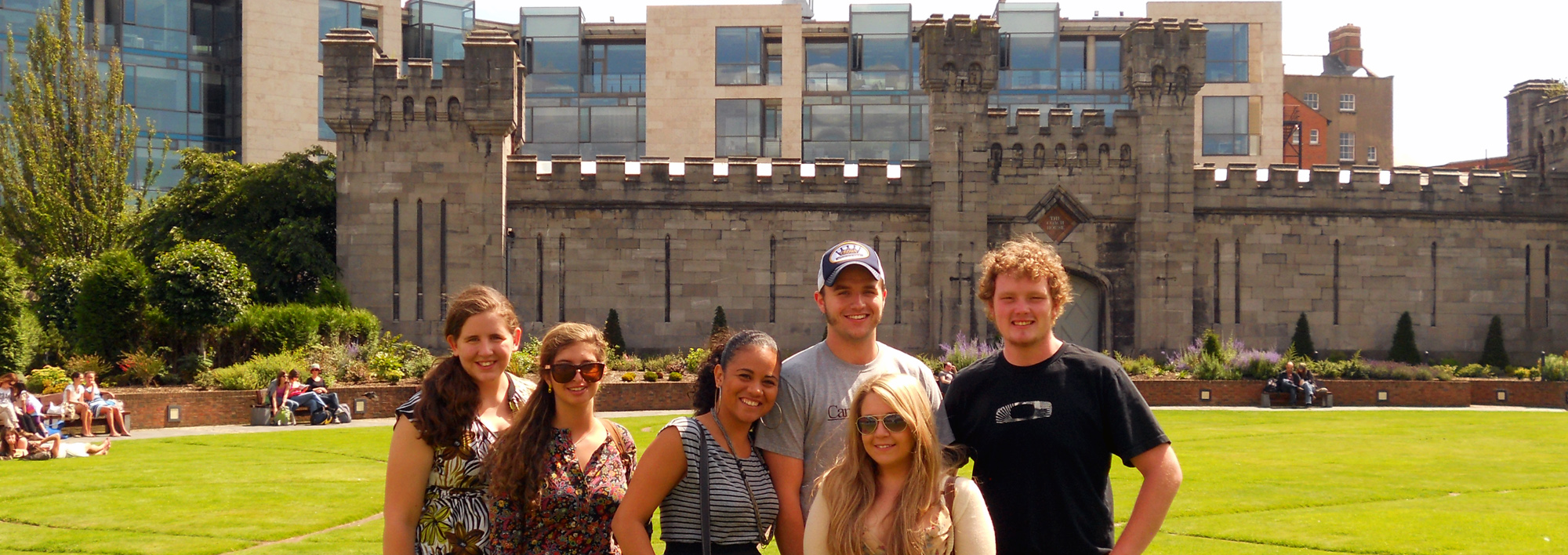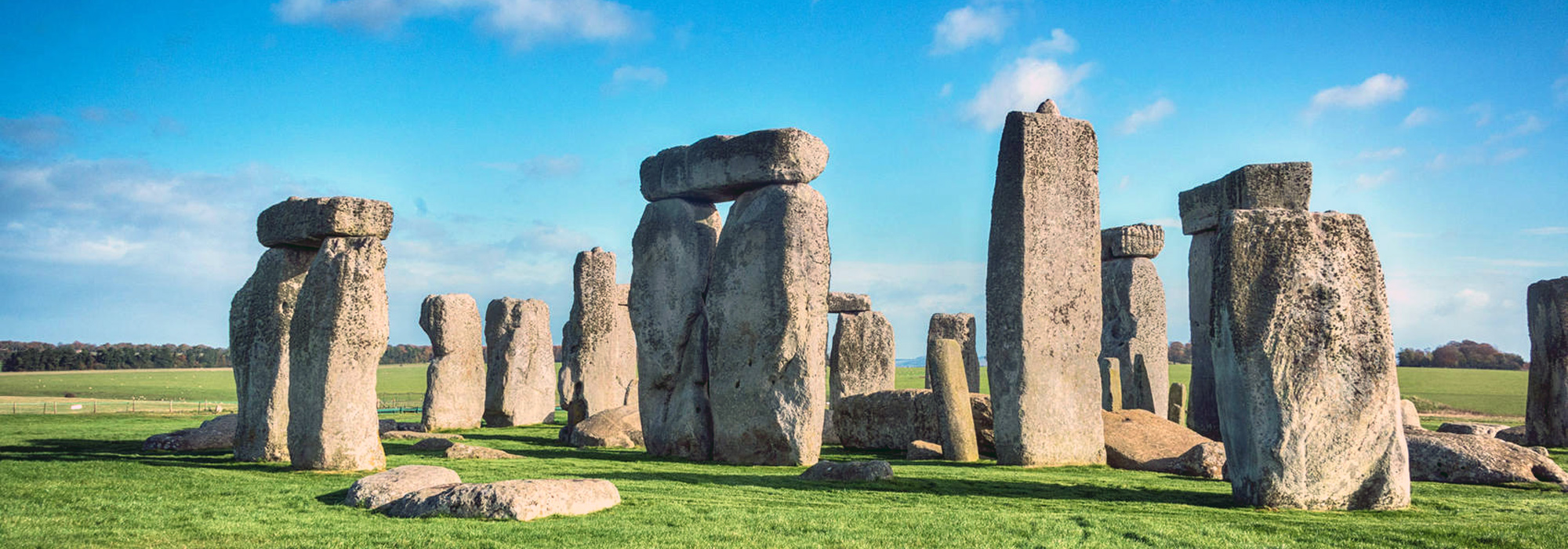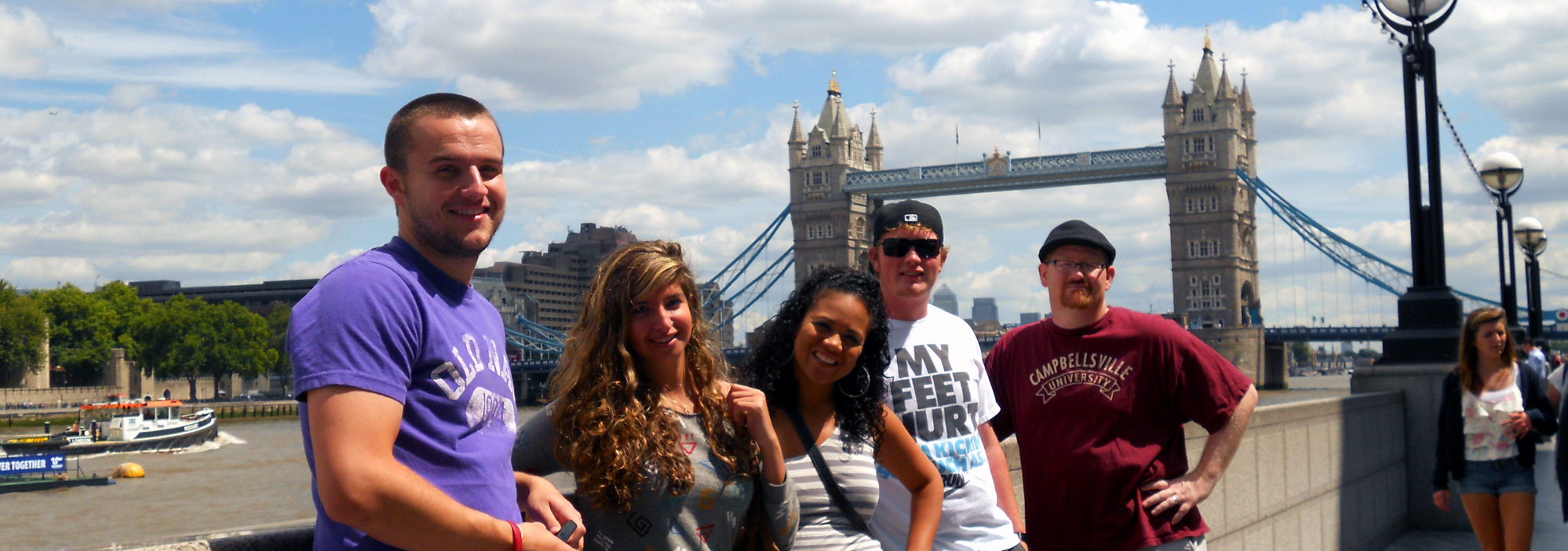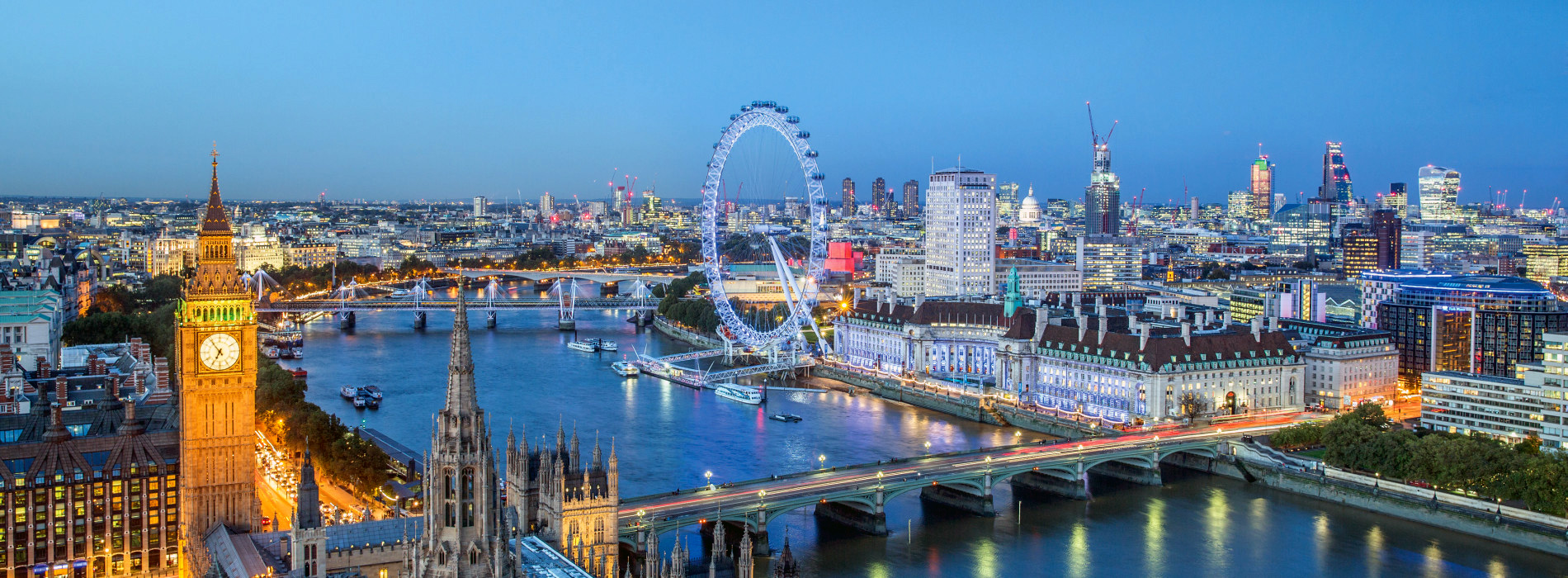ENGLAND
London
London, the capital of both England and the United Kingdom, is the epitome of a global city. With diverse communities, historic landmarks, world-class museums, thriving theaters and lively markets, there is a wealth of fascinating things to see and do. It is no wonder most agree with the Samuel Johnson quote, “When a man is tired of London, he is tired of life.”
London’s history goes back more than 2000 years to its founding by the Romans. Greater London contains four World Heritage Sites: the Tower of London; the historic settlement of Greenwich; the Royal Botanic Gardens, Kew; and the site comprising the Palace of Westminster, Westminster Abbey and St. Margaret’s Church. London has been part of many movements and phenomena throughout history, including the English Renaissance, the Industrial Revolution and the Gothic Revival.
London’s influence in politics, education, entertainment, media, fashion and the arts contributes to its status as a major global city. Its population draws from a wide range of peoples, cultures, and religions, and over 300 languages are spoken within the city.
London is one of the world’s most important business and financial centers. The City is headquarters to more than half of the UK’s top 100 listed companies (the FTSE 100) and over 100 of Europe’s 500 largest companies.
England, United Kingdom
The United Kingdom of Great Britain and Northern Ireland, commonly known as the United Kingdom, the UK and Britain, consists of four countries: England, Northern Ireland, Scotland and Wales. The UK is a constitutional monarchy with Queen Elizabeth II as the head of state, but with no direct political control. UK is governed by a parliamentary system with its capital in London, England, and three devolved national administrations in Belfast, Northern Ireland, Cardiff, Wales and Edinburgh, Scotland. UK is the world’s oldest parliamentary system. Its constitutional, governmental and legal innovations have been widely adopted by nations around the world.
The UK emerged as the principal military and political power of the 19th century after the defeat of Napoleon. The British Empire expanded to its maximum size by 1921 and encompassed almost a quarter of the world’s land surface, the largest empire in history. UK’s empire diminished after World War II, but it remains a major power with strong economic, cultural, military and political influence worldwide. UK is a Member State of the European Union, holds a permanent seat on the United Nations Security Council, and is a member of the G8, NATO, OECD, World Trade Organization and the Commonwealth of Nations.
England is the principal country in the UK with 83% of the total population. England, formed in the year 927, takes its name from the Angles, one of the Germanic tribes who settled in the area during the 5th and 6th centuries. England has had a significant impact on the world. It was the place of origin of the English language, the Church of England, English law, Industrial Revolution and modern science. Today, England serves as the center for fashion, art, entertainment, business, education and modern popular culture.
QUICK FACTS
- Population of England: 61 Million
- Population of London: 7.5 million
- Official Language: English
- Currency: British Pound (GBP)
- Local time in London: GMT+8
- High temp in London: July: 88°F
- High temp in London: January: 34°F

